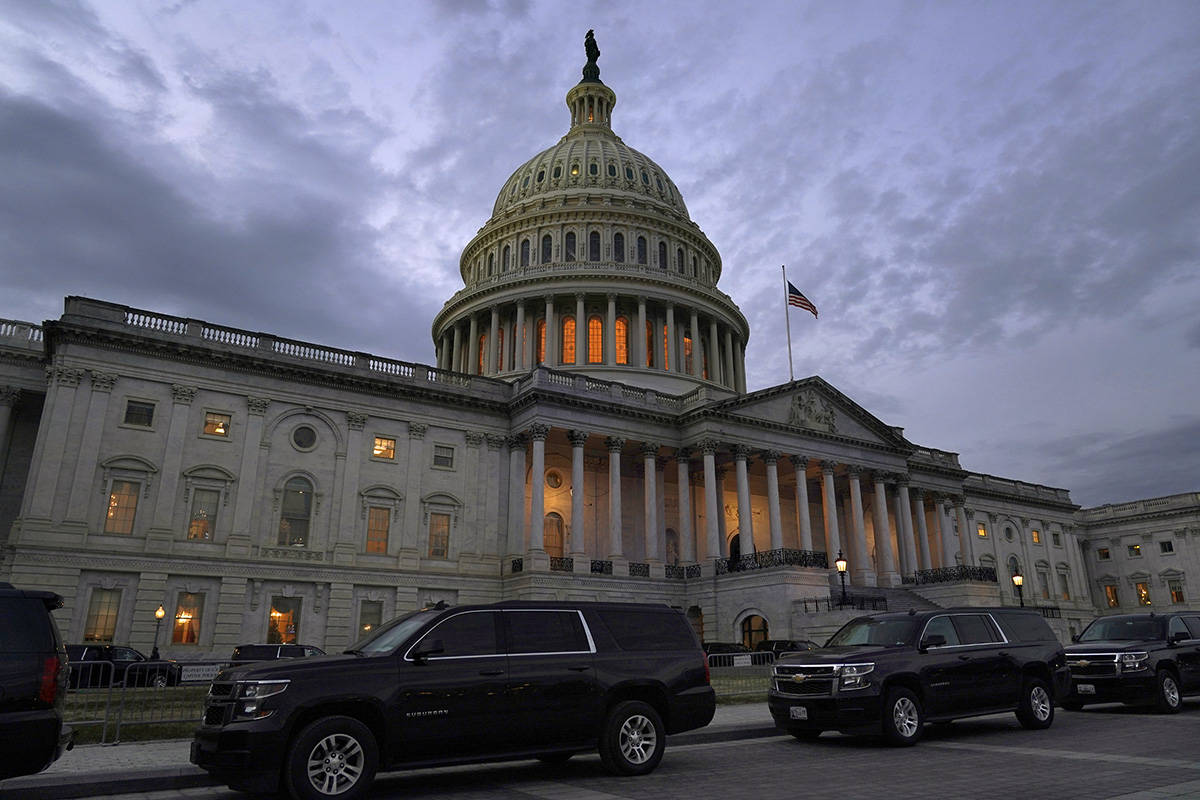EDITORIAL: New virus relief bill spreads the money around

Congress had to pass Obamacare to find out what’s in it, Nancy Pelosi famously admitted. The same is likely true for the massive $2.5 trillion spending deal that Republicans and Democrats reached over the weekend. The ink was barely dry on the 5,600 pages — the Founders needed only 4,500 words for the entire Bill of Rights — before members were expected to vote aye or nay.
But if there’s anything that Congress does without peer, it’s spending other people’s money in an effort to attract votes. Mission accomplished.
The measure includes another round of coronavirus relief, a $900 billion package that brings federal pandemic spending since March to $3.3 trillion. It features neither virus litigation protection for businesses, as Republicans sought, nor a pot of gold for state and local governments (read: public employee unions), as Democrats had insisted. Given that the relief package somewhat mirrors what the White House offered back in August, it becomes even more clear that the delays in pushing it across the finish line were largely a product of Ms. Pelosi’s vengeful effort to prevent President Donald Trump from claiming a legislative accomplishment prior to the November election.
As could be expected, there’s something for everyone. Congress will add $300 a week on top of the usual unemployment checks, which will potentially slow any pandemic recovery next year by making it more lucrative for some workers to stay on the sidelines rather than return to the workplace. Individual Americans earning up to $75,000 in 2019 will receive $600 checks, with the payments phasing out entirely at the $100,000 mark. Thus the government will be doling out cash to many people who are relatively well off and never lost their jobs.
Restaurants, bars and other small businesses will be eligible for another round of grants under the Paycheck Protection Program, which is defensible given they’ve largely borne the brunt of government-mandated economic restrictions. There’s also money for vaccine distribution, rental assistance, food stamps, child care, broadband access, mass transit, airline relief and school reopenings.
Of course, Democrats consider all this just the down payment on another spending spree next year under the guise of COVID relief. President-elect Joe Biden issued a statement saying the $900 billion plan “provides critical temporary support” but “is just the beginning. … Immediately, starting in the new year, Congress will need to get to work on support for our COVID-19 plan, for support to struggling families, and investments in jobs and economic recovery. There will be no time to waste.”
In other words, if the Democrats win both Senate seats up for grabs in Georgia, there won’t be enough electricity on the Eastern seaboard to keep those Treasury Department printing presses up and running.